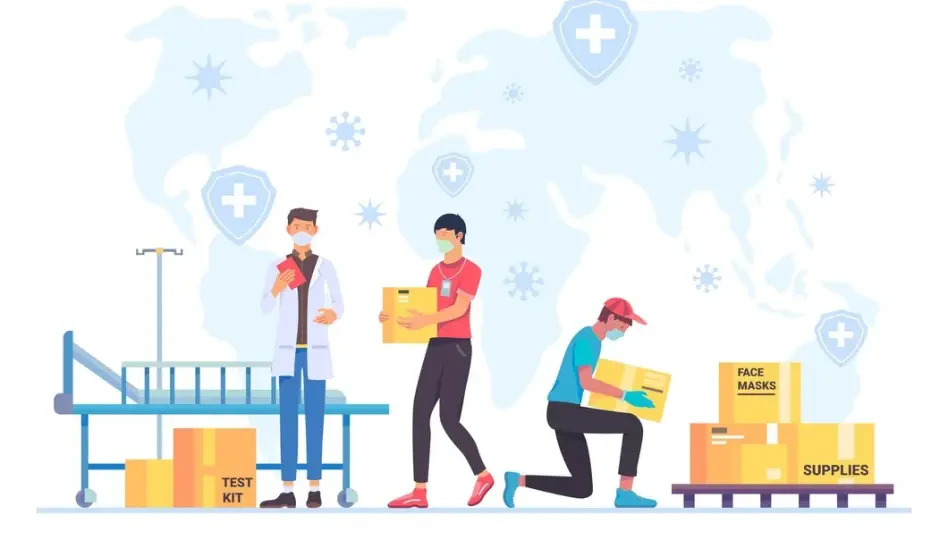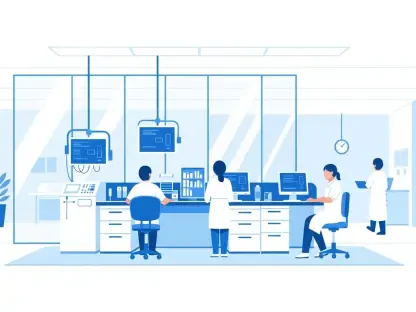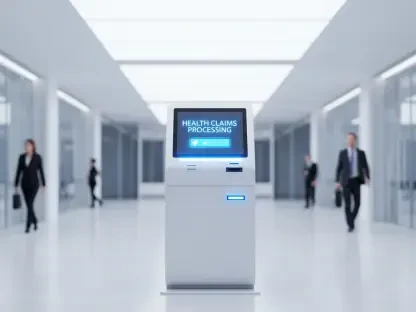Imagine a healthcare system where every dollar saved on supplies directly translates to better patient care, where strategic decisions prevent costly errors, and where innovation in logistics ensures life-saving equipment is always at hand. This is the reality for a select group of U.S. healthcare organizations recognized for their groundbreaking work in supply chain management. Their achievements highlight a critical yet often underappreciated aspect of healthcare: the power of efficient procurement and resource allocation to transform outcomes for both budgets and patients. This report dives into the state of healthcare supply chain practices, spotlighting the latest award winners and exploring the trends shaping this vital sector.
Overview of the Healthcare Supply Chain Landscape
The healthcare supply chain stands as a cornerstone of operational efficiency and patient safety in an industry facing mounting pressures from rising costs and complex regulations. Across the United States, hospitals and health systems grapple with the dual challenge of maintaining high-quality care while managing tight budgets. Supply chain management, which encompasses everything from procurement of medical devices to inventory control, plays a pivotal role in striking this balance, often determining whether resources are available when and where they are needed most.
Recent years have seen heightened scrutiny on supply chain resilience, especially as global disruptions have exposed vulnerabilities in sourcing and distribution networks. Healthcare organizations are increasingly tasked with navigating vendor relationships, ensuring compliance with safety standards, and adopting technologies to streamline processes. Against this backdrop, recognition for excellence in this field serves as both a benchmark and an inspiration for others striving to optimize their operations.
This report focuses on the organizations leading the charge, dissecting their strategies and the broader trends driving innovation. By examining their approaches, alongside data and insights from industry experts, a clearer picture emerges of how supply chain excellence is reshaping healthcare delivery for the better.
Honoring Leaders in Supply Chain Innovation
Award Winners and Their Impact
This year, twelve U.S. healthcare organizations have been celebrated for their exceptional supply chain management, demonstrating that transformative practices can thrive in diverse settings. Among the honorees are prominent names such as Broward Health in Fort Lauderdale, Florida, The Ohio State University Wexner Medical Center in Columbus, Ohio, and Stanford Medicine Supply Chain in Palo Alto, California. These winners span a range of scales, from sprawling university hospitals to more localized regional medical centers, proving that effective supply chain strategies are not confined to any single type of institution.
Their accomplishments are striking, with many achieving significant cost reductions through initiatives like vendor consolidation, which streamlines procurement and cuts unnecessary expenses. Others have prioritized patient safety by adopting evidence-based product selection to minimize infection risks, while some report multimillion-dollar savings through rigorous benchmarking against industry standards. Such outcomes underscore the tangible benefits of strategic supply chain practices, extending far beyond mere financial gains to directly enhance clinical care.
The diversity among the winners also reflects a universal potential for excellence, regardless of an organization’s size or scope. Whether managing vast networks or focused regional operations, these health systems illustrate how tailored approaches to procurement and logistics can yield remarkable results. Their recognition serves as a powerful reminder of the impact that disciplined supply chain management can have across the healthcare spectrum.
Winning Strategies and Best Practices
A closer look at the award winners reveals common threads in their approaches, with collaboration, standardization, and data-driven decision-making emerging as key pillars of success. Many have fostered tight-knit partnerships between clinical and administrative teams to ensure that procurement decisions align with patient care priorities. This collaborative spirit often extends to vendors and suppliers, creating more efficient and transparent supply networks.
Standardization of products and processes has also proven instrumental, reducing variability in equipment and supplies to lower costs and improve reliability. Meanwhile, leveraging data analytics allows these organizations to anticipate needs, optimize inventory, and identify savings opportunities with precision. Industry leaders like Tim Browne and Stuart Morris-Hipkins from ECRI, a nonprofit dedicated to patient safety, emphasize that such data-driven outcomes, paired with strong teamwork, are critical to achieving both operational efficiency and better patient experiences.
These strategies do more than trim budgets; they enable healthcare providers to redirect resources toward frontline care. By minimizing waste and ensuring the right tools are available at the right time, the award winners demonstrate how supply chain management can directly support clinical excellence, setting a high standard for others in the field to follow.
Trends Shaping the Future of Supply Chain Practices
The healthcare supply chain sector is undergoing a profound transformation, driven by a growing reliance on technology and analytics to enhance decision-making. Award-winning organizations increasingly turn to sophisticated tools to track spending, forecast demand, and manage inventory with unprecedented accuracy. These advancements allow for real-time adjustments, helping to prevent shortages or overstocking that can strain budgets or disrupt care.
Data from ECRI highlights the scale of this shift, with their services supporting over 4,000 U.S. healthcare facilities in identifying more than $13 billion in annual savings opportunities through comprehensive datasets. Over the past year alone, analysis of nearly $86 billion in expenditure has provided actionable insights that inform procurement strategies and prioritize patient safety. This reliance on robust data underscores a broader industry move toward evidence-based practices that balance cost with quality.
Looking ahead, emerging technologies such as artificial intelligence and blockchain hold promise for further revolutionizing supply chain operations. From predictive analytics to secure tracking of medical goods, these innovations are poised to tackle persistent challenges like supply disruptions and compliance risks. As these tools gain traction, they are likely to redefine how healthcare organizations approach procurement over the coming years, from now through 2027 and beyond.
Overcoming Barriers to Supply Chain Excellence
Achieving mastery in supply chain management is no small feat, given the myriad challenges healthcare organizations face in balancing cost containment with uncompromised care quality. Budget constraints often clash with the need for cutting-edge equipment, while fluctuating demand for supplies can complicate inventory planning. Additionally, maintaining rigorous safety standards adds another layer of complexity to procurement decisions.
Integrating new technologies presents its own set of hurdles, as systems must be aligned with existing workflows and staff trained to use them effectively. Vendor relationships, too, require careful management to ensure reliability and transparency, especially in times of global supply chain instability. The award winners, however, have navigated these obstacles by leaning on evidence-based selection processes and benchmarking to make informed choices that align with both fiscal and clinical goals.
Their success offers valuable lessons for others in the industry, showing that persistence and strategic planning can turn challenges into opportunities. By prioritizing data over guesswork and fostering strong partnerships across departments and with suppliers, these organizations have managed to build resilient supply chains capable of withstanding pressures and delivering consistent results.
The Critical Role of Standards and Support
Central to the success of many healthcare supply chains is the guidance provided by independent entities focused on safety and quality. ECRI, recognized as an Evidence-based Practice Center by the U.S. Agency for Healthcare Research and Quality, plays a vital role in this arena by offering tools and datasets that help organizations meet regulatory requirements while achieving substantial cost savings. Their expertise provides a trusted foundation for decision-making in an often complex field.
Compliance with safety standards remains a non-negotiable priority, as lapses can jeopardize patient well-being and expose facilities to legal risks. Support services, including detailed expenditure analysis and procurement recommendations, enable health systems to align their practices with these standards without sacrificing efficiency. This structured approach ensures that every purchasing decision is both defensible and optimized for value.
For the award winners, access to such resources has been a game-changer, allowing them to refine their processes while staying ahead of regulatory demands. This synergy between independent support and internal commitment to excellence highlights how adherence to high standards can drive meaningful improvements in both financial performance and patient outcomes across healthcare settings.
Reflecting on Achievements and Looking Ahead
Looking back on this year’s recognition of healthcare supply chain leaders, their accomplishments stand as a testament to the power of strategic innovation in overcoming industry challenges. The twelve honored organizations showcased how thoughtful procurement, grounded in collaboration and data, delivered not only impressive savings but also elevated standards of patient care. Their varied approaches provided a roadmap for others, proving that excellence is attainable across diverse operational landscapes.
As the industry reflects on these milestones, actionable steps emerge for those aiming to emulate this success. Health systems can start by investing in analytics to uncover hidden savings and streamline inventory, while fostering cross-departmental teamwork to align supply decisions with clinical needs. Engaging with trusted partners for guidance on compliance and best practices also proves essential in navigating the complexities of modern healthcare logistics.
Beyond immediate actions, the horizon holds exciting possibilities with technology poised to further reshape supply chain dynamics. Organizations that adapt to these advancements, while staying attuned to evolving patient demands and economic shifts, are likely to lead the next wave of transformation. This recognition of past achievements thus paves the way for a future where supply chain management remains a vital driver of healthcare progress.









